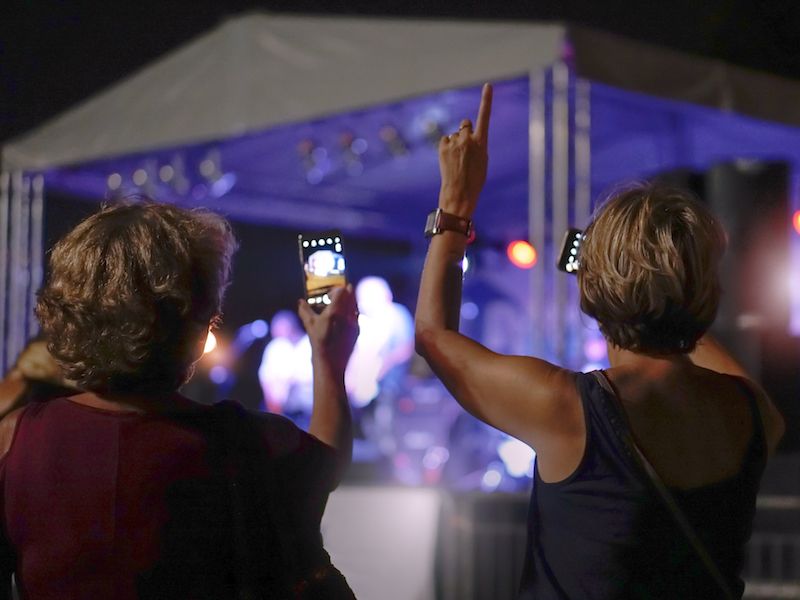
We’ve been looking forward to summer activities all year: trips to the beach, relaxing by the pool, and injured hearing? That’s correct, summer has a lot of unseen dangers to your ears, either from loud sounds or the external scenarios you could find yourself in. Any noises over 80 decibels can lead to harm to your hearing, while lasting loss of hearing can take hold in swimming pools or other bodies of water. You have to take preventative measures and be aware of your environment in order to keep your hearing safe this summer. Here are six of the summer’s hidden hearing risks.
Wear Ear Protection at Concerts
Whether you’re at an indoor stadium or an outside concert venue you still need to use ear protection during concerts. Live music can reach that are over 90 decibels, even at outside concerts, which is inside of the danger zone of hearing loss. So whether you’re going to inside or outside concerts, it’s a good plan to use earplugs. Earplugs reduce the sound while still letting you to hear and enjoy the music. If you’re going to a performance with young children, consider getting them a heavy duty set of earmuffs because kids have more delicate hearing than adults.
Fireworks Are More Than Just Loud
Honestly, there are a lot of reasons to avoid fireworks in the summer. This is not about the professional 4th of July fireworks show, we mean the backyard fireworks which every summer cause many of injuries. Home fireworks reach decibel levels of over 155 which can injure your ears along with causing hand problems, loss of sight and home fires. This year, on the 4th of July, enjoy the fireworks from a distance and leave the fireworks to the pro’s.
Lawnmowers Can Bring About Loss of Hearing
If you’re serious about your yard, it’s likely that you’re out there every week on your mower, trimming your bushes and using your edger. But have you ever noted how off your ears feel when you get done, how everything sounds muffled or your ears are ringing? That’s because the lawn tools, which are constantly loud, have a slow and steady impact on your hearing. Perhaps you’ve noticed landscapers wearing some kind of hearing protection, you should take a hint from them and wear earmuffs or earplugs next time you attend to your yard to make certain your ears doesn’t get injured.
Beaches And Pools, What You Should do to Protect Your Ears
Millions of people suffer from swimmer’s ear each summer, which occurs when bacteria-packed water gets stuck in your ear canal. Swelling and painful earaches are the result when the ear gets infected by the bacteria. It’s not exclusively lakes and rivers that have these bacteria, they can also be found in hot tubs and pools if they are not cleaned and treated correctly. No permanent damage should take place if you have your hearing examined by a hearing professional. To protect against swimmer’s ear, however, you should wear special swimming earplugs in the pool and have your pool water tested to make sure the chemical balance is ok.
Water Sports And Boats
If you enjoy the water, summertime is beach and boating time for you. But, boat and jet ski engines are often loud,we’re talking more than 100 decibels. Continuous subjection to that kind of noise for a period of about 15 minutes can result in long-term hearing damage. Once more, it’s probably in your best interests to wear a couple of throw away, foam earplugs while you’re out on the water to make certain you don’t unwittingly harm your ears.
Car Races Can Harm Your Ears
It doesn’t make a difference what type of auto racing you love, midget, Formula 1, drag racing, motorcycle Formula 1. If you attend many auto-races this summer, they all present a danger. 120 dB is well within the danger zone for hearing loss and many races go way above this. As mentioned before, your children should wear muffs whereas you should use earplugs at the very least. Otherwise, you may not get to enjoy the sound of those engines as you get older.